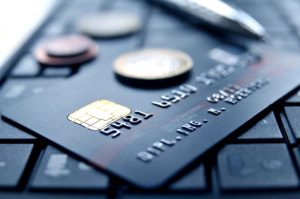More than 10 million people become victims to identity theft every year. This translates to 19 new victims every single minute. Identity theft scams are many and range from card-skimmers at gas stations, to romance scams, fake Social Security Administration calls, tricky email phishing scams, and many other forms. It can cost victims hundreds of hours and an average of $1,000 to recover from identity theft.[1]
In order to protect yourself from the vicious threats of identity theft you can practice several precautions.

1. Be conscientious when using your debit or credit card. If you’re in a place or situation that seems questionable, especially while travelling, use cash instead. When using your card at the gas station, do a quick check as best as you can to make sure there isn’t a skimmer in the card reader.
2. Strengthen your passwords. Scammers have software programs that go through random accounts with commonly used passwords. When repeated hundreds and thousands of times they eventually gain access to accounts. You can strengthen your security by making your password at least 8 characters long and by using a number and a special character. You should also maintain different passwords for different accounts so that if you’re compromised in one, you won’t be in another.
3. Check your credit report periodically to make sure everything is as it should be. You can do this for free at https://www.annualcreditreport.com/index.action .
4. Know the telltale signs of identity theft tactics. If you receive an email from your grandson saying he is stuck in Bahrain and needs 10 million dollars to be freed from the government and then asks for your bank routing and account number, you know it’s a scam, especially if you don’t have grandchildren. But there are much more subtle signs of identity theft. Scammers are constantly changing and adapting their tactics and it can be difficult to anticipate what they’ll do next. The best way to guard against the latest scamming innovations is to subscribe to scambusters.com which will send you a weekly email detailing how to guard yourself against identity theft.
5. Monitor your mail and financial statements. While this is not a very advanced form of identity theft, criminals can still get your information simply by stealing your mail and then pretending to be you. Check your mail as early and as often as you can and monitor your financial statements to make sure everything is correct.

These are just a few, basic ways to protect yourself from the ravaging effects of identity theft. While no one can prevent identity theft 100%, these safeguards will limit the probability that you will become a victim and can also minimize the costs and headaches if you do.
Were you a victim of identity theft? What are some things you could have done differently to avoid it? What are some other ways that you can protect yourself against identity theft?



